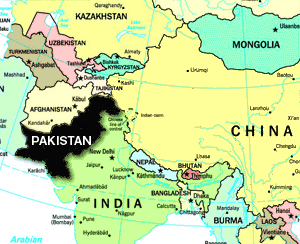So who really runs Pakistan these days? Foreign Affairs sponsored a roundtable of experts that produced this rollicking, contentious clash of opinions:
Sumit Ganguly: Is there any doubt about that? The army, for all practical purposes, has been and remains in charge….Shaun Gregory: I agree with Sumit on this. The civilian government is very weak. The Pakistani army retains de facto control of foreign policy, defense policy, internal security, and nuclear policy, and will defend its expanded economic interests….Ashley Tellis: Sumit has it dead-on. The army rules on all the critical issues important to it: the nuclear program, the budget, security policy, relations with key foreign partners….Aqil Shah: The military has withdrawn from exercising direct government power by passing the baton to elected civilians, as it has done several times in the past, but it would be naive to expect it to loosen its control over what it sees as its legitimate “structural” missions […] Once the army chief signs off on a policy, the costs of disobedience can be prohibitively high….Stephen Cohen: The army cannot govern Pakistan but won’t let anyone else govern it either. It’s a chicken-egg situation, worsened by the total collapse of the economy and the withering away of state institutions.
 Hmmm. Reading between the lines, then, the answer is “the Pakistani army”? Right? So, to echo Freud, what does the army want? Aqil Shah again:
Hmmm. Reading between the lines, then, the answer is “the Pakistani army”? Right? So, to echo Freud, what does the army want? Aqil Shah again:
Any desire to deal firmly with cross-border militancy is trumped by the military’s perceived need to retain its ties to this or that militant group in order to counter Indian influence in Afghanistan. The army continues to fear that the United States could simply lose interest in Afghanistan once it captures the senior leadership of al Qaeda (as Washington did after the Soviet withdrawal from Afghanistan), leaving Pakistan exposed to Indian (and Russian) “encirclement”.
….There appears to be a pervasive belief in the army, among both mid-level and senior officers, that the United States and India are destabilizing FATA [Federally Administered Tribal Areas] and the rest of the country as a prelude to depriving Pakistan of its nuclear weapons. Officers who have served in FATA have told me that they face a U.S.-Indian combined offensive and that the local Taliban receive their funds from across the border. The army might inculcate such beliefs in order to motivate its soldiers, but they also connect to the military’s larger worldview. For the generals, the U.S.-Indian nuclear deal is proof of an evolving Indo-U.S., or even Indo-U.S.-Israeli, strategic alliance — not to mention American duplicity.
This is a point that Matt Yglesias is fond of making, and for good reason: we tend to think that foreign policy everywhere is focused on the United States, but it ain’t so. Pakistan obviously cares a lot about its relationship with America, but it cares a whole lot more about its relationships with India, China, Iran, and Afghanistan, which are right on their doorstep and are never going away.















